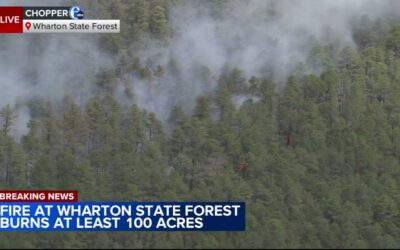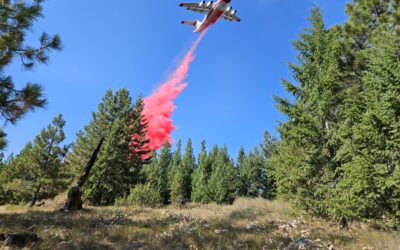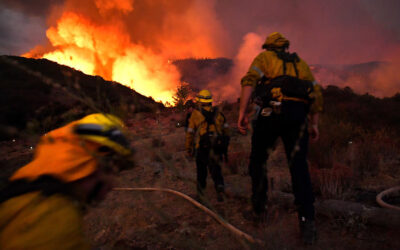Many years ago, I was a relatively new captain working on a paramedic engine company. I was pretty good at my job for a young captain but still had a lot of learning and experiences to add to my slide tray.
I loved my job and had a great crew. We worked well together and enjoyed each other’s company. That camaraderie improved our performance as a team. When we were involved in a tough or complex operation, our teamwork and friendship was a multiplier for performance. It also might have made up for my inexperience as the company officer. But generally speaking we were a high performing group.
One day while on duty, we were dispatched to a multiple vehicle accident with injuries. The accident was on a stretch of busy, curved two lane highway right at the city limits. That section of road was infamous for MVAs. Folks drove too fast while the road curved steeply downhill into the city. We regularly responded to this location. No big deal. Famous last words.
Upon arrival, we saw two large sedans with major damage to both vehicles. It was a head-on collision. Someone crossed the centerline on that curved piece of road. The occupants hadn’t been wearing their seatbelts, so we had patients strewn across the blacktop. It looked like a scene from a movie. Patients laying in the cars, half in and half out and on the roadway.
I gave a quick size up, “Central, Engine 51 is on the scene of a two vehicle MVA with major damage to both vehicles, appears to be at least six patients. Strike a second alarm plus a third ambulance. Engine 51 will be command.”
Now I would eventually have a total of three ambulances, two engines, a truck company and a command officer on scene. But in the meantime, it was me and my crew to deal with an absolute mess.
We had a lot to contend with. Besides the obvious patient care, we also had to deal with leaking gas tanks, potential electrical arcing, and unstable vehicles. There were patients screaming, groaning and yelling for help. No problem… there were three of us.
As the initial on-scene incident commander, my job was to manage the scene. Pretty simple. And as the captain of E-51 that day, we were only staffed with a total of three firefighters. My rover was at another station. So how much managing versus how much doing was I going to do?
While one firefighter medic did a quick triage of the patients, the other checked out the vehicles to determine how stable the scene was. I started assigning patient numbers and injuries while the ambulance arrived to assist. Communicating to dispatch with updates. Then, “Captain, quick we need another backboard.” Oh yea… back to tracking which patient was being treated first.
“Captain, can you drag the pre-connect over here.” Wait, did Engine 71 say they were enroute yet?
“Hey Captain, can you hold C-spine over here for me?” Did I give the battalion chief an update?
“Hey Cap, we’ve got gasoline leaking over here by this patient.” Shit, when is 71 going to get here? Did I get the patients numbered correctly? First ambulance is about to leave with two patients… which numbers are they again?
Battalion seven arrived and walked up to my engine where I was standing.
“What do you want me to do?”
Normally it would be a no brainer, take command. But today was different. He was a medic and I was only an EMT.
“Chief, do you mind doing patient care? We need your medical expertise right now.”
“No worries, I’ll get right at it.”
Engine 71 and truck 72 arrived along with the second and third ambulances. What a mess it was. Pretty soon, every patient had at least one or two firefighters or ambulance personnel providing them care.
By the time the last ambulance left with the last patient, the accident scene looked like a landfill with paper and plastic detritus from IV bags, needle containers, cling packaging and all the wrapping and trash that the medical supplies come in. My engine looked like a tornado had blown through. One of my firefighter/medics had gone in to the hospital with their patients on the ambulance.
While “managing” this incident scene, I kept thinking to myself, “Pull up. Pull Up!” I knew I wasn’t doing a good job at managing everything.
I had gotten tunnel vision from all the patients, their groaning and screaming. I knew for the good of the patients, I really needed to pay attention to the big picture. But shorthanded as we were, I got sucked into all the minutia of a complex MVA instead.
Now we waited while the tow trucks removed the vehicles, and we picked up all the gear that was scattered about the scene. My engineer and I reloaded the inch-and-a-half pre-connect hose and slowly made our way to the hospital to re-supply and pick up our firefighter. All the while I kept thinking about how that accident scene was one crazy cluster.
On our next shift, the battalion chief called me and said, “Hey Captain Scopa, come over to Station 7 at 1300, and we’ll conduct an AAR on the MVA.”
After Action Reviews are hopefully common with all first responders. And they should be common for everyone of us, whether you’re a school teacher or the manager of the local Ace Hardware store. AARs are how we learn from our mistakes. They speed up the learning process. Rather than every experience being like our first exposure to a problem, we learn and improve our performance from each experience. A formal AAR process can help speed the learning for those of us involved.
A simple military model for an AAR asks 4 simple questions.
What was planned?
What actually happened?
Why did it happen?
What are we going to do next time?
There are other formats, but for my way of thinking it’s not about the format. Use whatever format works for you. But discuss how did the incident go and what can you do better next time.
When my engine arrived at Station 7 that afternoon, truck 72, engine 71 and our BC were already there. My crew and I walked in to the dayroom, and most of the firefighters were already seated, waiting for our arrival. My crew sat down, and the battalion chief was looking at me. As I sat down I said, “Before we start the AAR, let me just say I screwed up. I did a poor job as the IC and let myself get sucked in to the scene. It would have all gone a lot better had we had a stronger command presence. Just thought I’d get that out in the open before the AAR starts”
It was like everyone sat back in their seats more relaxed. As a younger captain, I probably walked around with a bit of a chip on my shoulder, always feeling like I had to prove myself. And to be honest, some of the older firefighters and officers didn’t think much of me either, which didn’t help. But this was about learning. It wasn’t a time for egos. And egos can be a huge impediment to learning. Let me repeat that one more time. Your ego can be the biggest barrier to your learning.
Now that I acknowledged that I could have done a better job at managing the big picture scene of that MVA, we could all cooperatively talk about what had happened and how we could all improve for the next time. The environment for learning was made easier because I wasn’t trying to defend my actions. I took that off the table.
We spent the next 30 or so minutes discussing the problems of managing an engine company when short handed and what we can do to compensate. What we would do differently the next time. Everyone from the battalion chief to the newest firefighter on duty that day had some ideas how we could improve our performance. Now, that’s learning!
A few months later, I was on duty, but this time I was the acting battalion chief. I had tested and was next in line to be promoted from captain to battalion chief. When one of the battalion chiefs was off on vacation or sick, I would be moved up for the shift to function as the duty chief.
On this particular day, tones went out over the radio, “Engine 51, Engine 71… multiple vehicle MVA at….” It was the same location. Quickly, Engine 51 recognized the severity of the call and upgraded the alarm so before even arriving on scene, there were additional resources responding, including me as Battalion 5.
When I arrived it was like a repeat of the accident that I had responded to earlier. But this time I wasn’t on the engine, I was in a command vehicle. This time the first-in engine crew could just concentrate on patient care and incident stabilization. I was coming in right behind them with the cavalry.
As I sat in the cab of that command SUV with my clipboard, notes and radios, I had it all figured out. It was organized; I was in control. Part way into the incident, I looked in my rear view mirror and saw the department chief driving up behind me. I figured maybe he was just passing by and wanted to check in. He walked up to my rig and slid into the passenger seat without saying anything. He just looked out the windshield at the accident scene and listened to me as I was talking on the radio and making notes about which patient had just left in the ambulance and their ETA to the ER.
When there was a pause in the activity, I looked over at him and started to give him a summary of the incident. He waved me off, “Yea yea, I’ve been listening. It sounds like it’s going well.” I was still pretty much on task. Paying attention to the radio and watching the next ambulance leave with patient number three, then four.
But when the last patient was enroute to the hospital and the remaining crews were picking up their equipment, chief turned to me and said, “You’re redeeming yourself today, aren’t you?” I kind of let out a breath, “Yea, I guess I am.”
The situation wasn’t exactly the same as the last accident on that bit of highway, but it sort of was. I wasn’t trying to command the scene from the engine, but the information from our AAR had been shared with the other shifts. Learning has to be bigger than an individual or a shift. Learning should be corporate in nature. Those crews on duty had reviewed what we learned a month before. They had that in mind and performed at a higher level. They learned from my mistakes.
We all have the opportunity to read formal accident investigations, facilitated learning analysis and lots of other information from lessons learned. Take those opportunities, and when you’re reading the materials, don’t say, “What an idiot; I would have never done that.” Get your ego out of it. Try to figure out why the people involved made the decisions they did. Put yourself in their position.
And when you’re a part of an AAR (which I hope you participate in often), don’t let your ego get in the way of learning. Take a deep breath, engage and be honest. It’s the way we all get better at our jobs.
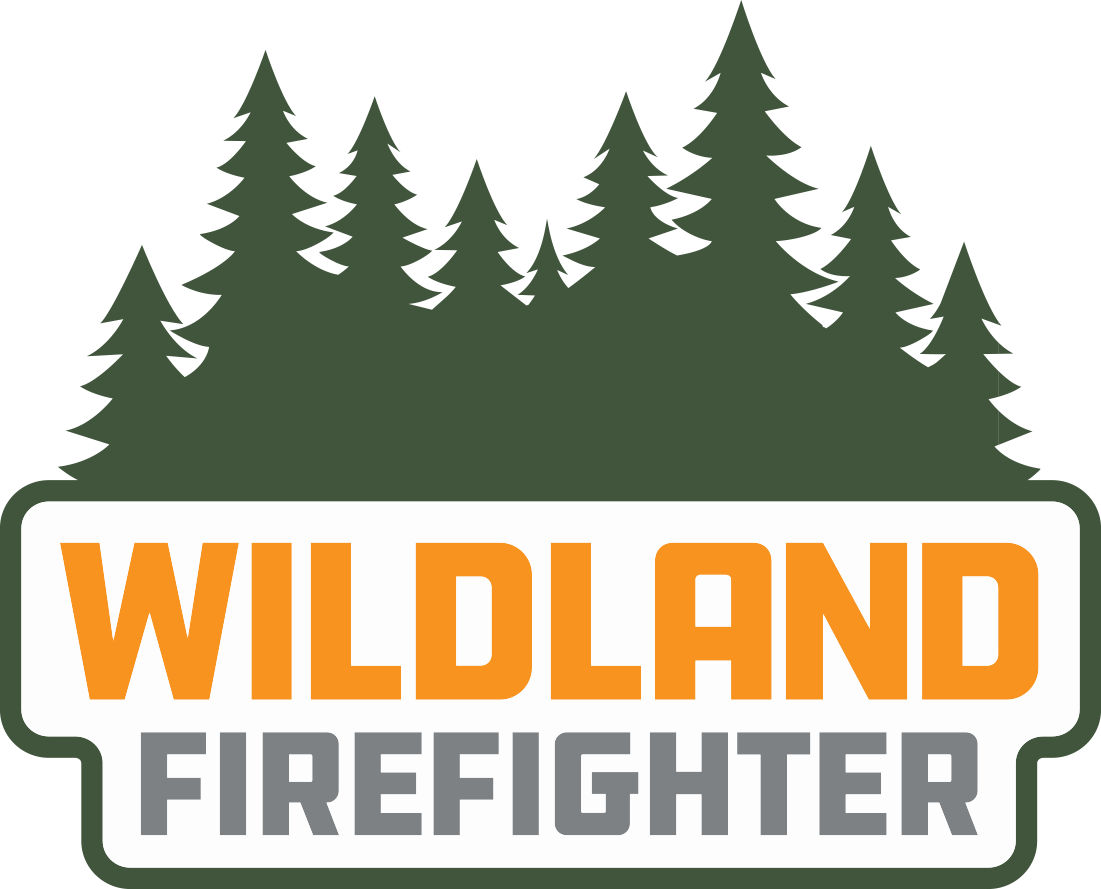
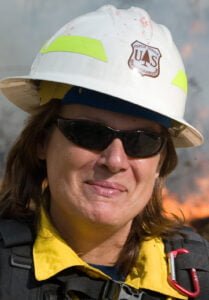 Bobbie Scopa started her career as a seasonal firefighter in 1974. After graduating from Arizona State University, she went on to work in fire and natural resource management. Eventually she left the wildand agencies to work full time for a structure fire department. She finished her Masters in Forestry at NC State then went back to the US Forest Service and BLM eventually becoming the Assistant Regional Fire Director in Region 6. Bobbie has spent many years working as a type 1 and 2 Operations Section Chief. You can listen to Bobbie tell audio stories from her long career at BobbieOnFire.com. She has also recently completed her memoir titled “Both Sides Of The Fire Line”. It will be available through Chicago Review Press late summer of 2022.
Bobbie Scopa started her career as a seasonal firefighter in 1974. After graduating from Arizona State University, she went on to work in fire and natural resource management. Eventually she left the wildand agencies to work full time for a structure fire department. She finished her Masters in Forestry at NC State then went back to the US Forest Service and BLM eventually becoming the Assistant Regional Fire Director in Region 6. Bobbie has spent many years working as a type 1 and 2 Operations Section Chief. You can listen to Bobbie tell audio stories from her long career at BobbieOnFire.com. She has also recently completed her memoir titled “Both Sides Of The Fire Line”. It will be available through Chicago Review Press late summer of 2022.